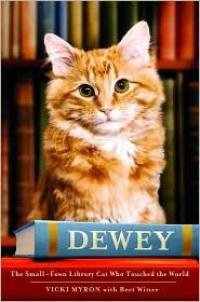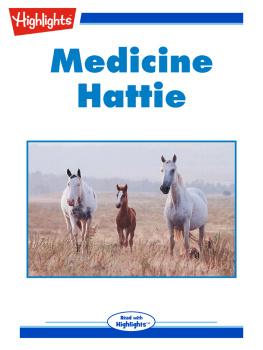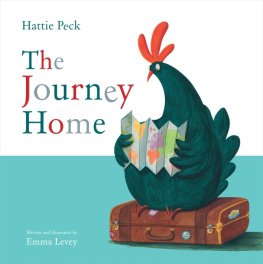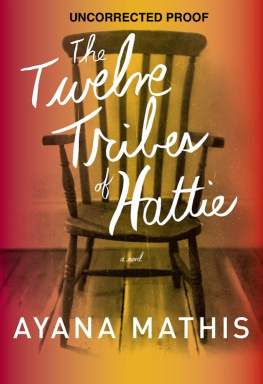ALSO BY GISH JEN The Love Wife Whos Irish? Mona in the Promised Land Typical American
THIS IS A BORZOI BOOK
PUBLISHED BY ALFRED A. KNOPF
Copyright 2010 by Gish Jen
All rights reserved. Published in the United States by Alfred A. Knopf, a division of Random House, Inc., New York, and in Canada by Random House of Canada Limited, Toronto.
www.aaknopf.com
Knopf, Borzoi Books, and the colophon are registered trademarks of Random House, Inc.
This is a work of fiction.
Names, characters, places, and incidents either are the products of the authors imagination or are used fictitiously. Any resemblance to actual events, locales, or persons, living or dead, is entirely coincidental.
Library of Congress
Cataloging-in-Publication Data
Jen, Gish.
World and town : a novel / by Gish Jen.1st ed.
p. cm.
eISBN: 978-0-307-59441-9
1. Chinese-American womenFiction. 2. WidowsFiction. 3. Cambodian AmericansFiction. 4. Refugee familiesFiction. 5. City and town lifeUnited StatesFiction. I. Title.
PS3560.E474W67 2010
813.54dc22 2010007057
First Edition
v3.1
For Maryann Thompson
The American attaches himself to his little community for the same reason that the mountaineer clings to his hills, because the characteristic features of his country are there more distinctly marked; it has a more striking physiognomy. ALEXIS DE TOCQUEVILLE , Democracy in America Although the eye is the first stage in vision, remember that it is actually the brain that sees. NEIL CAMPBELL, JANE REECE , et al., Biology With our thoughts, we make the world. GAUTAMA BUDDHA
Contents
PROLOGUE
A Lost World
Its the bi sh youd notice mostthe thousand-year-old cypressessome of them upright, some of them leaning. And their bark, youd see, if you visitedupward-spiraling, deeply grooved, on these straight trunks that rise and rise. They look as though someone took a rake to them, then gave them a twist, who knows why. Just having that idea about what made a fine tree, maybe. And jumbled up at their feet: acres and acres of grave mounds. Not one succeeding the next, in orderly rows and avenues with each inhabitant duly lined up and noted, but rather newer mounds piled up, willy-nilly, on top of others, so that as far as you could see it would be Kongs, Kongs, Kongs! All of them descendants of Kngzi Confucius. Even now, at age sixty-eight, it is something for Hattie Kong, American citizen, to recall. Two thousand years of relatives, plopped down to rest in a single old forest .
Said forest lying in the town of Qufu, in Shandong province, in Chinanot far from where Hattie grew up, and yet a world away. For Hattie grew up in Qingdao, also in Shandong, but on the oceana port city. A cosmopolitan city, occupied by the Germans before the Japanese, and a city known therefore for its charming Bavarian architecture and for its beer, which its residents drink from plastic bags, with straws .
Qufu is not about beer .
Confuciuss mound, naturally, is the biggest of the moundsmaybe ten feet highand the most distinct. Its set off some from the others. Theres some stone this-and-that and scrub grass around it, but mostly it is an eminent pile of dirt. If you saw it in a natural history exhibit, you might think it a wonder of naturesomething the termites made, bugs being so much more of a force than we give them credit for, and so on. Nothing could be more modest, or of this earth, so to speak. It was an anti-monument, really; who knows why Hatties mother loved to stop in front of it. But yngrn that she wasforeignershe would pause, tuck her hair behind her ears, fold her hands, and then lower, with reverence, her blue sun hat. Never mind that she was no longer a missionary, but a Chinamans wife. Never mind that she had, as people so kindly put it, gone native. Standing there in her Chinese dressand she would, of course, be wearing a Chinese dressshe would strike the same attitude she might have had she been standing in a church, and had not been disowned and disavowed by the civilized world .
This is worth taking in, she would say, in English. This is worth taking away. Then she would nod as if in deep agreement with herself, and look to Hattie, whoeight years old then, and brown-haired like her motherwas supposed to reply in English. (Her mother not having given up on civilizing entirely, of course, just on the civilizing of strangers.) And so it was that Hattie repliednaturallyin Chinese . Shnme? What? What was worth taking away?
Hattie! Please! Her mother waited with her freckled hands folded. Hattie?
(And her hands could stay like that a long time, Hattie knew. Her hands could stay and stay and stay.)
Hattie?
Until finally Hattie folded her hands, too, and said , Yes?
Do you see?
(The dirt and grass were dusty, like the air and clouds and sun.)
I dont.
Her mother frowned at first. But a moment later, the shade on her face drew up; there was a smile of light, and thenlooka real smile. But of course not. The shade came back down. Hatties mother hummed. Then Hattie and her mother dutifully joined the rest of the family in their grave sweeping and clearing, thoughmodern people that they wereher mother and father were far more interested in Hu Shih and Darwin than in the Old Sage. Ritual! The Five Relationships! What a lot of hogwash it all was. Should women really obey their husbands as children obeyed their parents? And why could only male Kongs and their wives be buried in Qufu?
That is, if they had hair! Hatties father would exclaimConfucius, in his wisdom, having specifically banned from the family forest, the bald .
Hatties mother shook her head. It was no better than what she used to teach at the mission school, really, if not worse. Worse! Still Hattie grew up dutifully sweeping the Qufu graves, tooevery spring, on Qngmng, as well as on her ancestors birthdays and death daysuntil one day, when Hattie was fifteen, her fathers mother announced a solution to the problem of Hattie having to be buried elsewhere: Shed found some distant Kong cousins willing to marry their son to a hn xeer a mixed blood .
Isnt that good news? finished Ni-nai. Her dry eyes that did not shine much anymore somehow shone; outside the latticed window, even the moon seemed to brighten, and the blue night clouds. And Hattie was glad to behold that brightening, even as she was relieved, a minute later, to hear her mother switch to English .
I will not see her married off, she said, as soon as Ni-nai left the room. I will not. People said she was growing more American all the time instead of lessso earnestand now, as if to prove their point, her knuckle hit the table on I and will and not. She leaned forward, her wattley neck straining hard against her collar. She has to have a choice.
More raps with has and have and choice.
Hatties father raised his smooth hand. Though his wife was the Westerner in the family, he was the one in Western clothespants and a shirt. He wore a length of rope for a belt, and answered in English .
Excuse me. Teacher. He spoke softly, as everyone could hear everything in their old houseand tuned in, too, of course. I did not know today we have class.
Very funny.
No, no. Really. He winked at Hattie. I havent my book.
I dont have, corrected Hattie. I dont have my book.
Her mother did not even tell her that children, excuse me, did not speak to their fathers that way .
You are siding with your mother, she said insteadin Chinese, now, though not in the lispy, fat-tongued Qingdao dialect their family all spoke, but in Mandarin .
Hatties father nodded. Im afraid of her, he agreed disarmingly, speaking Mandarin, toomeeting his wife, as if on a bridge . W p t. He winked again, sitting back on his stool. They were partners still; they were forging something together. A little family .













